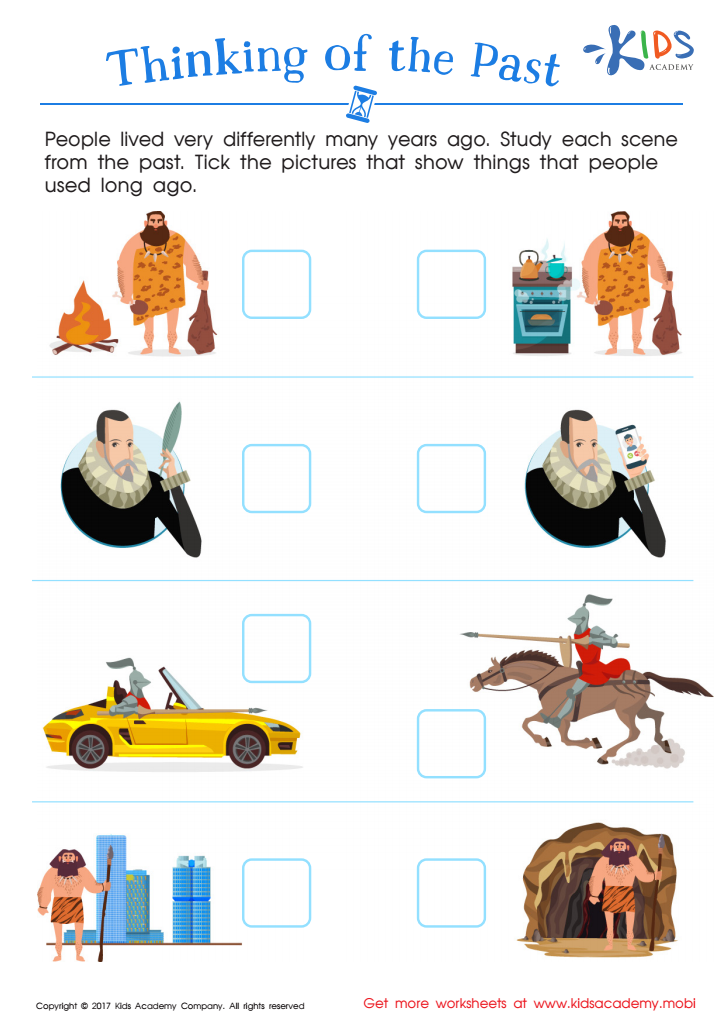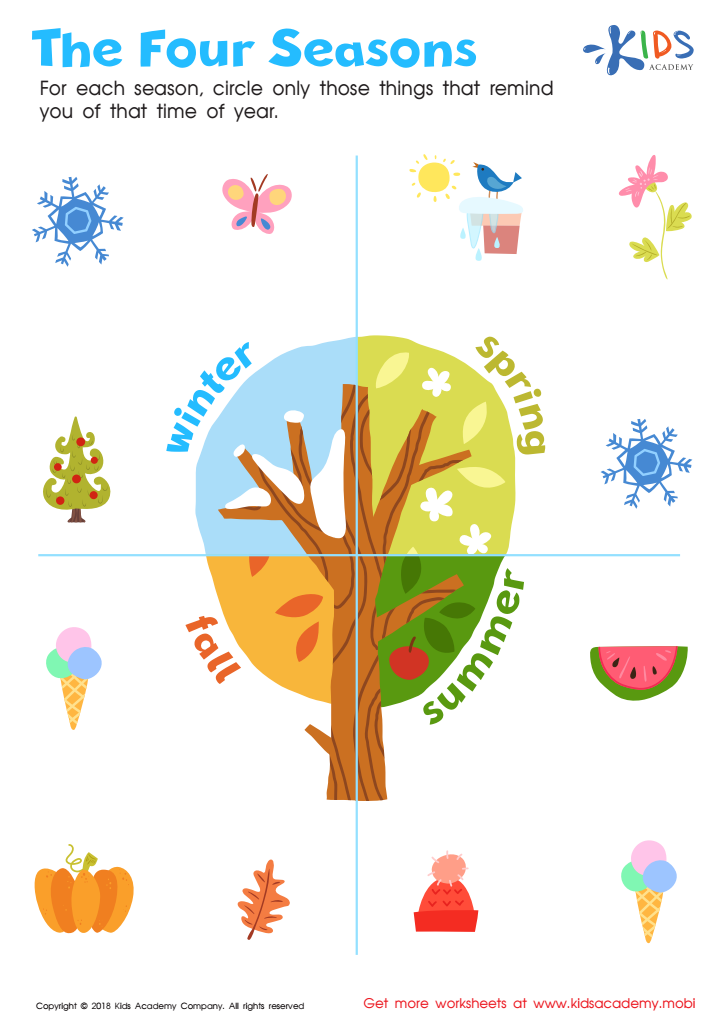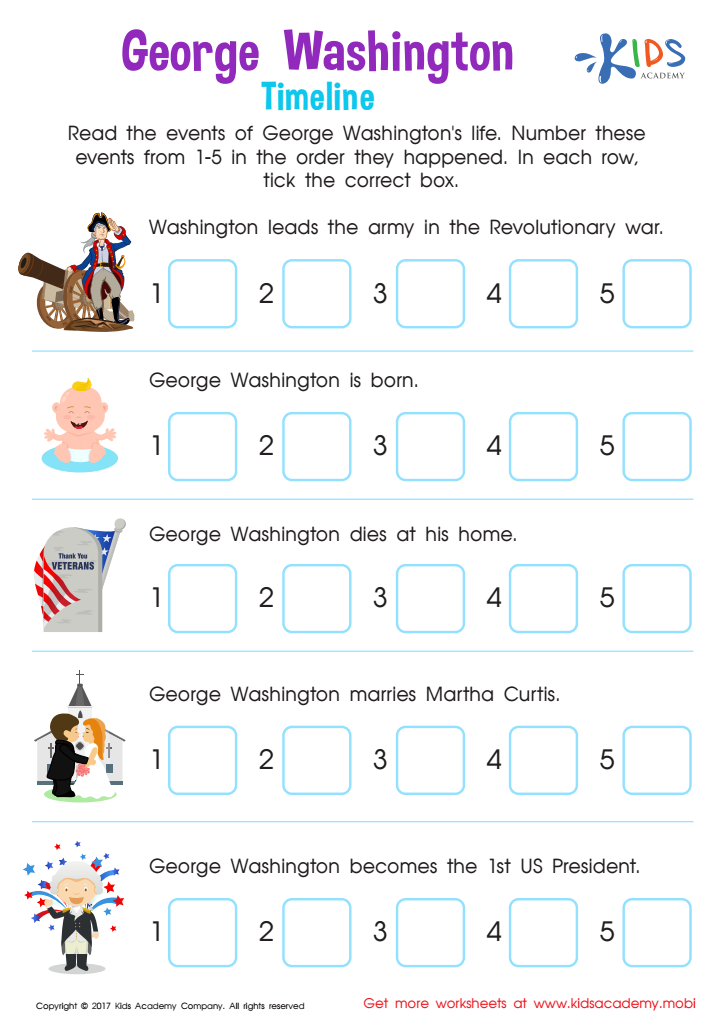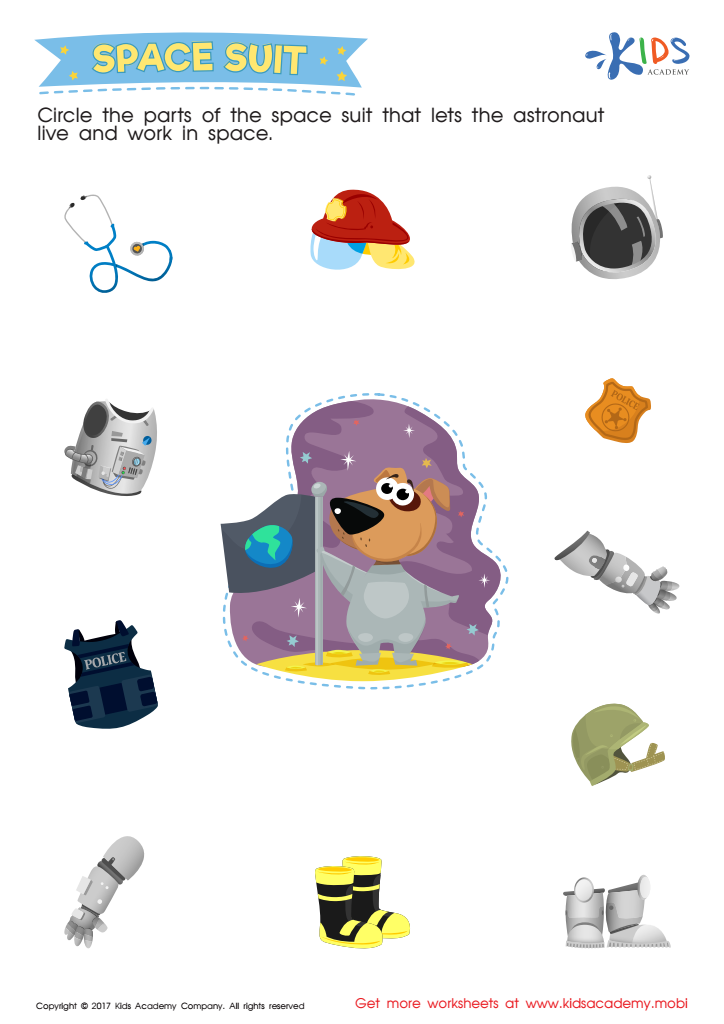Critical Thinking World Around Us Worksheets for Ages 3-8
6 filtered results
-
From - To
Discover our engaging "Critical Thinking World Around Us Worksheets" designed specifically for children aged 3-8! These worksheets encourage young learners to explore their environment and develop essential critical thinking skills. Through fun activities like problem-solving exercises, reasoning tasks, and creative challenges, children can enhance their cognitive abilities while learning about the world around them. Perfect for parents and teachers alike, our printable worksheets foster curiosity and independence, making learning exciting and interactive. Help your little ones navigate their surroundings with confidence and creativity—empower their critical thinking journey today with our specially crafted resources!


Herbivores Printable


Thinking Past Printable


The Four Seasons Worksheet


George Washington Timeline Worksheet
Critical thinking skills are essential for young children as they navigate a world filled with complex ideas and information. For children aged 3-8, developing critical thinking fosters independence and enhances problem-solving abilities. Parents and teachers should care about cultivating these skills early on because they lay the groundwork for lifelong learning.
At this age, children are naturally curious and eager to explore their surroundings. By encouraging critical thinking, caregivers can help children ask questions, evaluate information, and consider various perspectives. This encourages creativity and innovation, as children learn to think beyond given answers and explore alternative solutions.
Furthermore, critical thinking nurtures social-emotional skills. When children engage in discussions and express their thoughts, they develop communication abilities and learn to respect differing viewpoints. This is particularly important in today's diverse society, where understanding multiple perspectives promotes empathy and collaboration.
Incorporating critical thinking activities into daily routines and educational settings enriches children's learning experiences, preparing them not only for academic success but also for responsible citizenship. Thus, emphasizing critical thinking in early education helps build a foundation for competent, thoughtful individuals who engage meaningfully in their communities.

 Assign to My Students
Assign to My Students






















